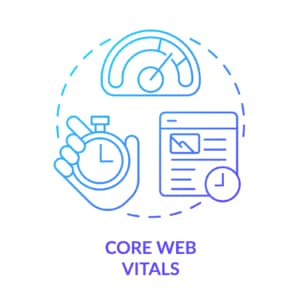Having your therapy or private practice seen online is super important. Like other businesses, therapists and private practice owners need to be easy to find on search engines. To get noticed by the right people, it’s important to use keywords for SEO that your clients are looking for.
One way to find these keywords is to think about what people might type into search engines when they’re looking for therapy or specific services. Ask yourself, ‘What makes my practice unique?’ It could be the type of therapy you offer, like ‘anxiety therapy for kids’ or ‘couples counseling.’ Also, consider where you’re located, like ‘therapy in [your city].’ Another trick is to check out what words your competitors are using on their websites. Tools like Google Keyword Planner or Mangools can also give you ideas for popular keywords. By using these strategies, therapists and practice owners can pick the right words that will help them show up better in online searches and reach the people who need their help. In this article, we’ll talk about ways therapists and practice owners can find keywords and use them to show up more online and bring in the right clients.

Understanding the Basics of SEO Keywords
SEO keywords are the words or phrases that users type into search engines like Google when looking for information or services. For therapists and private practice owners, these keywords are the key to unlocking visibility among potential clients seeking mental health services. Before diving into the search for unique keywords, it’s essential to understand your niche, target audience, and the services you provide.
Know Your Niche and Audience
As a therapist or private practice owner, identifying your niche is the first step in finding unique keywords. Consider the specific areas of expertise you offer, such as marriage counseling, trauma therapy, or anxiety management. You want to focus on the keywords that you are wanting clients to come to your practice for. This way when your niched keyword gets to the top of the first page your ideal clients will easily find you. Understanding your target audience helps tailor your content and keywords to meet their needs.
For example, if you specialize in cognitive behavioral therapy for anxiety, your niche keywords might include “CBT for anxiety in Little Rock, AR”, “anxiety counseling in Little Rock, AR”, or “stress management therapy in Little Rock, AR.”
Utilize Long-Tail Keywords
Long-tail keywords are longer and more specific phrases that users often search for. While they may have lower search volumes compared to generic keywords, they are highly valuable in attracting a more targeted audience. Long-tail keywords also help you compete more effectively in search engine rankings. Long-tail keywords are also helpful when your include location as it helps focus on local SEO.
For instance, instead of using the broad term “therapy,” consider incorporating long-tail keywords. Like “online therapy for teens in Lawrence, KS,” “couples counseling in Lawrence, KS,” or “mindfulness-based stress reduction therapy in Lawrence, KS.”
Tools and Techniques for Keyword Discovery
Now that you have a foundational understanding of your niche and audience, here are practical tools and techniques to discover unique keywords for your therapy practice.
Mangools Keyword Finder
Mangools Keyword Finder is a helpful tool that helps you find relevant keywords based on your services and location. Start by entering your primary keywords, and the tool will generate a list of related terms along with their search volumes and difficulty. Look for keywords that have a balance between search volume and competition.
Client Feedback and Common Phrases
Pay attention to the language your clients use when describing their challenges or searching for therapy online. Client feedback, testimonials, and common phrases used in reviews can be a goldmine for discovering authentic keywords. Incorporate these phrases naturally into your website content.
Social Media Listening
Engage in social media listening to understand the conversations happening within your community. Platforms like Facebook, Instagram, X (formerly known as Twitter), and forums related to mental health can reveal trending topics and phrases that are niche to your practice. Be sure that you monitor the language used by your potential clients and incorporate those expressions into your content to help search engines and users understand what your content is about.

Implementation and Monitoring Keywords For SEO
Once you’ve identified unique keywords that best fit your therapy or private practice, it’s time to implement them strategically across your online platforms:
Website Content: Be sure that you integrate your keywords naturally into your website content, including service pages, blog posts, and meta descriptions. This way when search engines crawl your website, they will be able to catch the keywords throughout your content letting the search engine better understand your services and how much authority you have over the service.
Blogging: Be sure that you are regularly publishing blog posts that address common concerns within your niche. This not only provides valuable content for your audience but also helps boost and enhance your SEO. Blogging has proven to be effective when you focus on a specific keyword. For example using anxiety therapy as a blog post topic because you want to rank for the keyword anxiety therapy, (i.e. The Benefits of Anxiety Therapy).
Local SEO: Optimize your online presence for local searches by including location-based keywords. Including these specific locations, you are helping build trust and authority with Google or other Search Engines over that specific area. Also, be sure that your Google Business Profile (GBP) is complete and accurate. Your GBP should have the same information that is listed on your website and should be consistent throughout or Google may flag your website.
Monitor and Adjust: Regularly review your website analytics and SEO performance. If certain keywords are not generating the desired traffic, consider refining your strategy. This way you can continue to stay up to date on the changes that may be happening revolving around keywords.
Unique Keywords Will Help Ensure Your Practice Stays Visible
Discovering unique keywords for SEO as a therapist or private practice owner is an ongoing process that requires a deep understanding of both your niche and target audience. By using helpful keyword tools, client feedback, and social media listening, you can uncover authentic keywords that set you apart in search engine results! Implementing these keywords strategically, monitoring their performance, and adapting your approach, you will ensure that your therapy practice remains visible and accessible to those who need your services.

Ready to Book Your SEO Consultation With Simplified SEO Consulting?
If you’re ready to find the keywords that will help boost your website’s SEO, reach out to Simplified SEO Consulting to help you navigate SEO! Our expert team is dedicated to teaching you the ins and outs of SEO and helping you rank higher to attract your ideal clients through organic traffic. By working with us you will begin to understand SEO as well as implement positive SEO changes on your website! Begin your SEO journey with us by following these three easy steps:
- Book your SEO consultation
- Meet with one of our skilled SEO specialists
- Begin learning to find your niche keywords and watch your SEO work!
Other Services Offered With Simplified SEO Consulting
Apart from assisting and guiding you on exploring and maintaining your website’s SEO, our team offers support in both Done For You SEO Services and DIY Online SEO Courses, tailored to optimize your search engine rankings and attract your ideal clients to your website. Additionally, we present a 12-week Done With You Intensive Program for comprehensive assistance. Don’t forget to check out our blog for more invaluable tips and guides on SEO!
About The Author

At Simplified SEO Consulting, Brianna serves as a Mental Health SEO Specialist, who enjoys optimizing client websites and engaging with them to accomplish their private practice SEO goals. Her enthusiasm lies in motivating clients to delve into their own SEO and she takes pride in imparting a clear understanding of the SEO process. Brianna’s foremost concern is to ensure that clients not only enjoy their SEO journey but also gain the confidence to independently work on their websites and witness a significant boost in rankings!
If you require additional assistance, feel free to schedule a consultation with our consulting team to explore how we can assist you.

















 Link Building
Link Building










 Now, I want to clarify a couple of things. No one did anything wrong. This is simply an example I’m using to illustrate why our SEO process is most successful when our clients are actively involved. This amazing therapist has trusted the process and followed our SEO advice. Including scheduling that SEO checkup about 6 months after her Done-For-You SEO journey was complete. Now that we have a clear picture of the data, we can make the necessary adjustments to turn this increased website traffic into qualified calls and inquiries.
Now, I want to clarify a couple of things. No one did anything wrong. This is simply an example I’m using to illustrate why our SEO process is most successful when our clients are actively involved. This amazing therapist has trusted the process and followed our SEO advice. Including scheduling that SEO checkup about 6 months after her Done-For-You SEO journey was complete. Now that we have a clear picture of the data, we can make the necessary adjustments to turn this increased website traffic into qualified calls and inquiries.
